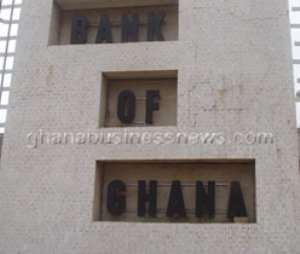
Normally in the advanced world during periods of recession and economic slowdown, the Feds and central banks fix this problem by diagnosing it through a monetary policy.
During this period of temporary economic decline, trade and industry activity are reduced and are generally identified by fall in GDP.
This is usually caused by high interest rates; which limits liquidity availability for business (SME's) to invest for growth, increased inflation; the percentage of goods and services that can be purchased with the same amount of money decreases, reduced Consumer Confidence; as consumers believe the economy is bad, they are less likely to spend money, reduced real wage; real wage in the sense as when adjusted to inflation, means workers pay is not keeping up with inflation.
When such causes of recession are prevalent in an economy, Central banks normally result to diagnose it by normally; reducing the prime rates to Commercial Banks to make business (SME's)easily have access to funds to invest. With such move taken, it gradually ease up tension in the economy, as the economy is liquified, more investment takes place creating jobs, increasing real wages to balance off inflation.
However, in Ghana, it seems there is much to it than just the Bank of Ghana(BoG) adjusting the Prime rate figures to meet it inflationary target to correct a recessionary period.
There are major issues facing Commercial Banks in Ghana that is preventing them from passing on such cut Prime rates by the BoG to customers (Businesses). The prime rate cut are normally expected to be enjoyed by households and businesses in the country especially the SMEs through loan facilities.
Major factors such as a weak microeconomy, non credit history, poor national identity and most importantly an accurate address system are the indirect hinderance to the full function of monetary policies taken by the BoG against a recessionary period.
A weak-micro. from the view of an economic instability (unstable currency especially)goes a long way to hinder the ability of household and businesses to maintain their Savings level. Already only a small percentage of Ghanaians Save(deposit) with the Banks.
As its well known banks hugely depends on deposits from households and businesses in other to fulfill its intermediary function to lend to the deficit unit. With a stable economy, household and businesses will be able to meet their end periods targets(returns) as planned and will be able to Save for the banks to have enough deposits for the deficit unit(borrowers) which reflects the BoG’s proposed rates.
Moreover, an inaccurate address system, poor national identity (ID) and the credit history( even to forgo), needed to gain trust with the bank clients especially, will be direct variables Banks will consider when measuring their risk in giving out loan facilities. When such variables seems unfavorable, it always affects the cost (interest) of giving out loans negatively.
From the above, the cost of loans in the country will always be high, offsetting any monetary policies taken by the BoG to ease up recession.
It can be witness by the BoG rather admonishing Commercial Banks in the country to reduce interest (cost) and even the Trade and Industry Minister Ekow Spio-Garbrah calling on businesses to demonstrate against high lending charges by Commercial Banks.
Banks will always reduce interest rates when the fundamentals are right and it is their best interest to do that. The onus rather lies on the government and must take a leading role.
Therefore a weak micro and a lack of a centralized data system on Ghanaians for Commercial Banks to use has always been a counterproductive factor to the BoG’s policies to tackle economic slowdown in the country.




 Akufo-Addo commissions Phase II of Kaleo solar power plant
Akufo-Addo commissions Phase II of Kaleo solar power plant
 NDC panics over Bawumia’s visit to Pope Francis
NDC panics over Bawumia’s visit to Pope Francis
 EC blasts Mahama over “false” claims on recruitment of Returning Officers
EC blasts Mahama over “false” claims on recruitment of Returning Officers
 Lands Minister gives ultimatum to Future Global Resources to revamp Prestea/Bogo...
Lands Minister gives ultimatum to Future Global Resources to revamp Prestea/Bogo...
 Wa Naa appeals to Akufo-Addo to audit state lands in Wa
Wa Naa appeals to Akufo-Addo to audit state lands in Wa
 Prof Opoku-Agyemang misunderstood Bawumia’s ‘driver mate’ analogy – Miracles Abo...
Prof Opoku-Agyemang misunderstood Bawumia’s ‘driver mate’ analogy – Miracles Abo...
 EU confident Ghana will not sign Anti-LGBTQI Bill
EU confident Ghana will not sign Anti-LGBTQI Bill
 Suspend implementation of Planting for Food and Jobs for 2024 - Stakeholders
Suspend implementation of Planting for Food and Jobs for 2024 - Stakeholders
 Tema West Municipal Assembly gets Ghana's First Female Aircraft Marshaller as ne...
Tema West Municipal Assembly gets Ghana's First Female Aircraft Marshaller as ne...
 Dumsor is affecting us double, release timetable – Disability Federation to ECG
Dumsor is affecting us double, release timetable – Disability Federation to ECG
